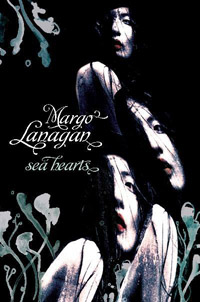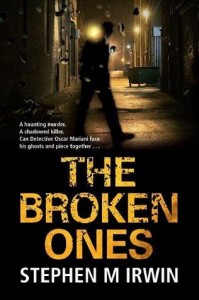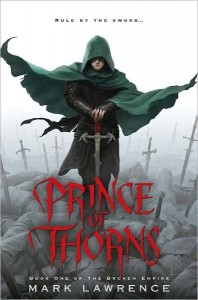[Note: This book is released in the US with the title: The Brides Of Rollrock Island.]
 Sea Hearts by Margo Lanagan is an outstanding achievement. I’m going to do my best to retain some professionalism in this review, but it’s going to be hard not to gush. You have been warned.
Sea Hearts by Margo Lanagan is an outstanding achievement. I’m going to do my best to retain some professionalism in this review, but it’s going to be hard not to gush. You have been warned.
Sea Hearts is the latest novel by Margo Lanagan, a writer justly lauded for her previous novels and extensive short fiction. This particular story started life as a novella in the novella anthology, X6, from coeur de lion publishing, edited by Keith Stevenson. I read that novella back when X6 was released and loved it. When I heard Lanagan was developing it into a full novel, I had some concerns.
The novella was a beautifully realised story. It told of the menfolk of Rollrock Island and their sea-wives – devastating women brought forth from seals by the witch, Miskaella. Selkies is the proper name. The novella told of the rise of the selkies on Rollrock, the subsequent disappearance of all the human women, who couldn’t compete with the sea-wives, and the subsequent developments, which I won’t give away here.
The sense of place and culture in the story was exquisite, the characters deep and fully realised. While I loved the novella, I wondered if expanding the story into a novel would somehow destroy that fragile balance. I should have known better. This is Margo Lanagan, after all, a master at her craft. Seriously, as a writer reading Margo’s work, I can’t help but feel that we’re all playing for second place.
The novel of Sea Hearts takes the original novella and expands on both ends of the story. It begins with the early life of Miskaella, tracking her development from misplaced child, to uncomfortable youth to adult witch. Having already read the novella, therefore knowing a lot of what comes in the second and third quarters of the book, this part was probably the most enjoyable for me. Miskaella’s story, in and of itself, was a joy to read. Poignant, heart-breaking, dark, beautiful and really quite sad.
I read the novella long enough ago that I can’t tell if much was changed for the novel. Certainly some changes were made, but the overall story in that middle to last section was similar enough that I knew everything that was going to happen. But, in further testament to Lanagan’s skill, it didn’t matter. I was happy to go on the journey again. Then I was rewarded at the end with some new developments of characters and story. And these things weren’t tacked on, but powerful compliments, which turned the book into a whole, generations-encompassing narrative, with both a sense of absolute completion and a sense of an interesting future just getting underway.
All of this was done with the master-strokes of Lanagan’s writing. Her ideas are both simple and incredibly deep, the issues she deals with simultaneously everyday and absolutely profound. Her writing style is never flowery or lurid, it is simply flawless.
My wife read the book and made excellent observations, which I’ll repeat here verbatim:
“Beautiful, clean and perfectly realised, yet delving deep into many layers of raw emotional truth, the kind of truth that you know experientially. [It raises] all sorts of questions: the parallel lives of men and women, about inheritance, about ‘otherness’ and about the struggle to be fulfilled and live in a way that expresses the core of your being – that to bury parts of oneself in an effort to fit into the world can be like a kind of death. That life can seduce us or alienate us away from our core selves and that the result of this is nothing less than tragic. These ideas were so perfectly nested together, nothing was wasted.”
I couldn’t have said it better myself. This book is dark and tragic on so many levels and yet always has one eye to the light, one hand reaching out for hope. Like I said at the beginning, an outstanding achievement.
.

 The good news for fans of Australian dark fiction — but most importantly, for Melbournian fans — is that a new genre bookstore has opened in the Victorian suburb of Chelsea.
The good news for fans of Australian dark fiction — but most importantly, for Melbournian fans — is that a new genre bookstore has opened in the Victorian suburb of Chelsea. The Darkest Shade of Grey
The Darkest Shade of Grey Midnight Echo, the official magazine of the Australian Horror Writers’ Association, has announced the line up for issue 7: The Taboo Issue, due out on May 31. So if you like your addictions, your fetishes and all the other things you’ve been told not to like, slip on your latex gloves and take a peek inside.
Midnight Echo, the official magazine of the Australian Horror Writers’ Association, has announced the line up for issue 7: The Taboo Issue, due out on May 31. So if you like your addictions, your fetishes and all the other things you’ve been told not to like, slip on your latex gloves and take a peek inside.